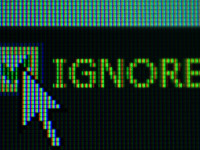The Canadian Radio-television and Telecommunications Commission backed down in its public spat with Netflix and Google yesterday, releasing public letters advising the two Internet giants that without the supporting evidence it was seeking, the CRTC will remove all Netflix and Google materials (including submitted documents and transcripts) from the public record. The Commission emphasized that it maintains the power under Section 16 of the Broadcasting Act to require disclosure of information and that participants cannot pick and choose the parts of the regulatory process they participate in. Yet rather than enforce that power, it has decided not to fight the Netflix and Google refusal to disclose information, instead opting for a regulatory right to forget.
Archive for September 30th, 2014

Law Bytes
Episode 210: Meredith Lilly on the Trade Risks Behind Canada’s Digital Services Tax and Mandated Streaming Payments
byMichael Geist

July 15, 2024
Michael Geist
June 24, 2024
Michael Geist
Search Results placeholder
Recent Posts
 The Law Bytes Podcast, Episode 210: Meredith Lilly on the Trade Risks Behind Canada’s Digital Services Tax and Mandated Streaming Payments
The Law Bytes Podcast, Episode 210: Meredith Lilly on the Trade Risks Behind Canada’s Digital Services Tax and Mandated Streaming Payments  Abandoning Institutional Neutrality: Why the University of Windsor Encampment Agreements Constrain Academic Freedom and Freedom of Expression
Abandoning Institutional Neutrality: Why the University of Windsor Encampment Agreements Constrain Academic Freedom and Freedom of Expression  The Law Bytes Podcast, Episode 209: Peter Menzies on Why the Canadian News Sector is Broken and How to Fix It
The Law Bytes Podcast, Episode 209: Peter Menzies on Why the Canadian News Sector is Broken and How to Fix It  Why the University of Windsor Encampment Agreement Violates Antisemitism and Academic Freedom Standards
Why the University of Windsor Encampment Agreement Violates Antisemitism and Academic Freedom Standards  Know When to Fold Em: The Big Risk Behind Canada’s Digital Services Tax Bet
Know When to Fold Em: The Big Risk Behind Canada’s Digital Services Tax Bet

